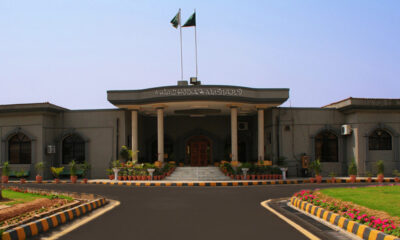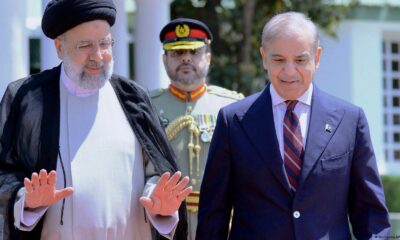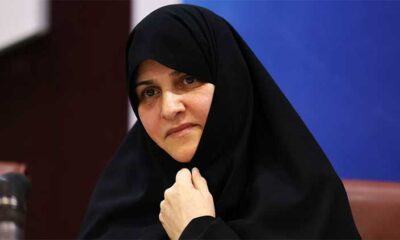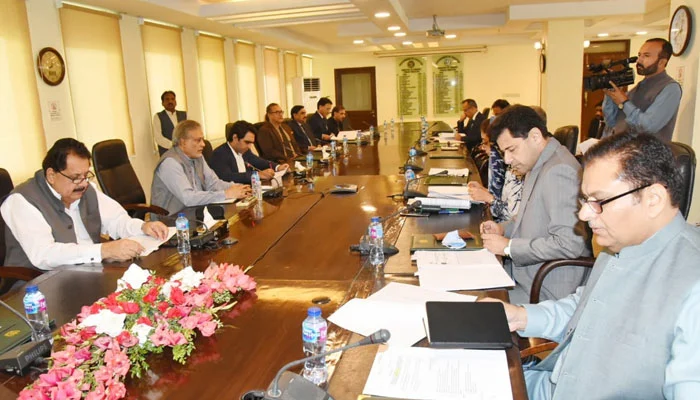- Govt okays to export 250,000 tonnes of sugar.
- Quantity includes export of 100,000 tonnes approved in last meeting.
- Finance minister Ishaq Dar presided over ECC meeting.
The Economic Coordination Committee (ECC) of the Cabinet has greenlighted the export of 250,000 tonnes of sugar with the condition that the Pakistan Sugar Mills Association (PSMA) ensures that the prices of sweetener would not exceed Rs85-90/kg in the domestic market.
The Federal Minister for Finance and Revenue, Senator Ishaq Dar presided over the ECC meeting on Tuesday. Those who attended the meeting include Federal Minister for Power Khurram Dastgir Khan, Federal Minister for Commerce Syed Naveed Qamar, Federal Minister for National Food Security and Research Tariq Bashir Cheema, former PM Shahid Khaqan Abbasi, Minister of State for Petroleum Musadik Masood Malik, SAPM on Finance Tariq Bajwa, SAPM on Government Effectiveness Muhammad Jehanzeb Khan, Coordinator to PM on Commerce & Industry Rana Ihsan Afzal, federal secretaries and senior officers.
The Ministry of National Food Security and Research submitted a summary on the export of sugar during the year 2022-23 and presented the recommendations of the 4th meeting of the Sugar Advisory Board (SAB).
The ECC after detailed discussions on the recommendation of SAB, allowed 250,000 tons of sugar for export inclusive of the previously permitted 100,000 tons by the ECC, on a first-come-first-served basis. The ECC further decided that the total quantity of export may be distributed among provinces based on their installed crushing capacity, to be determined by PSMA.
Petroleum Division tabled a summary on liquidity requirement of the PSO for import of LNG and petroleum products into the country. It was submitted that PSO has been engaged in the import of LNG into the country to meet the deficit in gas demand and supply and is obliged to clear its financial obligations of supplier within stipulated period.
In order to enable the PSO to remain current in its payment obligations to LNG suppliers as well as to maintain LNG supply chain, the ECC allowed release of Rs10 billion budgeted subsidy to Petroleum Division and allowed the government guarantee against bank financing upto Rs50 billion.
The Ministry of National Health Services, Regulation and Coordination submitted a summary regarding transfer of amount to government of Afghanistan for functioning, maintenance, equipments and salaries of three Pakistani hospitals in Afghanistan.
The ECC after discussion, approved the revised mechanisms and modalities for transfer of funds to Afghanistan, as proposed by the Afghanistan Inter-Ministerial Coordination Cell (AICC) with the direction to attempt to release the amount in Pak rupees.
As per revised mechanism, the total amount already approved by the cabinet for salaries i.e. Rs1.009 billion would be transferred to Afghanistan in four tranches. These funds would be transferred through the ministry of foreign affairs and sent to Pakistan’s embassy in Kabul. The remaining three tranches would be transferred through banking channels to the embassy account opened for the purpose of disbursing salaries for doctors and other staff working in hospitals in Afghanistan constructed and operated by Pakistan.
The ECC further decided that dollar proceeds of exports will be recovered within sixty days of the LC opening. The Ministry of Industry and Production submitted a summary on the diversion of RLNG to Urea fertilizer plants upto 31st Jan, 2023.
The ECC, after deliberation, decided to reject the proposal of Ministry of NFS&R and Ministry of I & P and decided that the RLNG supply to these plants would be discontinued with effect from midnight of 3rd January, 2023. The ECC deferred a summary submitted by the Ministry of Industries and Production tabled on price fixation of imported urea, with direction to work out and submit detailed mechanism for sharing of subsidy by provincial governments.

 Latest News2 days ago
Latest News2 days ago
 Latest News1 day ago
Latest News1 day ago
 Latest News1 day ago
Latest News1 day ago
 Latest News2 days ago
Latest News2 days ago
 Latest News1 day ago
Latest News1 day ago
 Latest News2 days ago
Latest News2 days ago
 Education2 days ago
Education2 days ago
 Latest News2 days ago
Latest News2 days ago
























